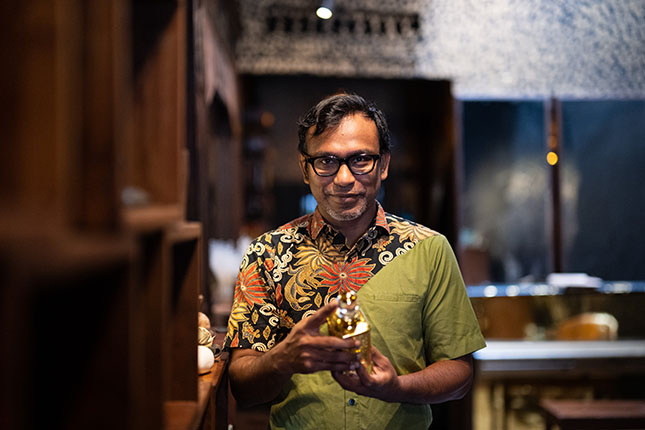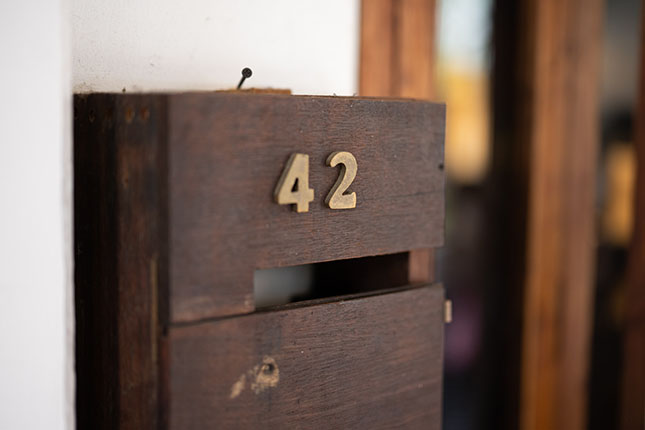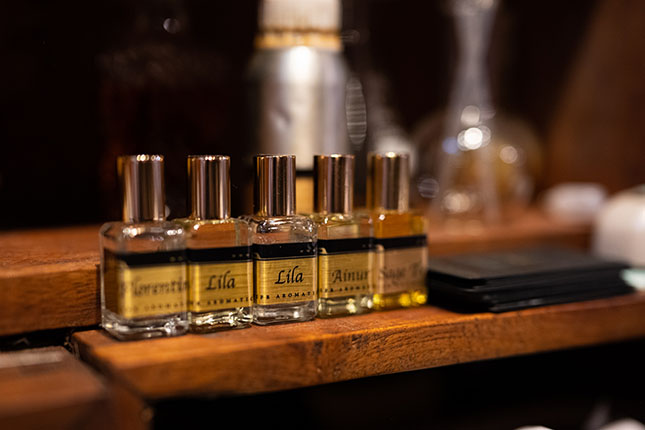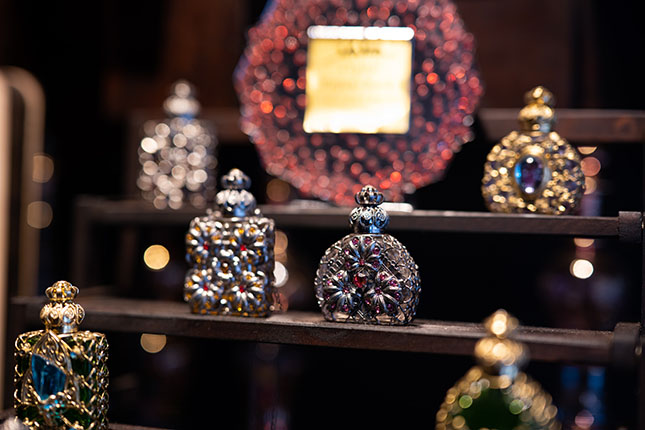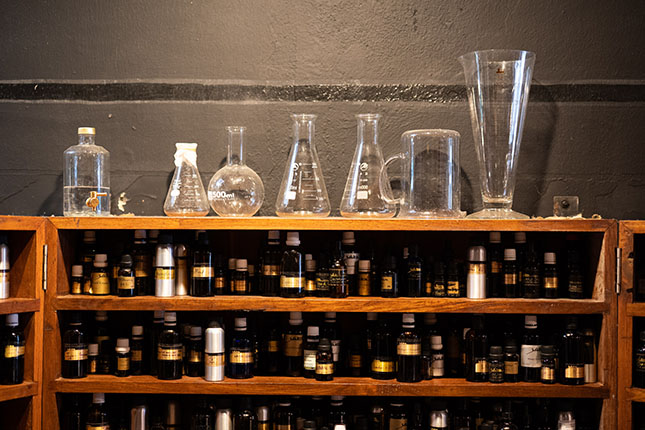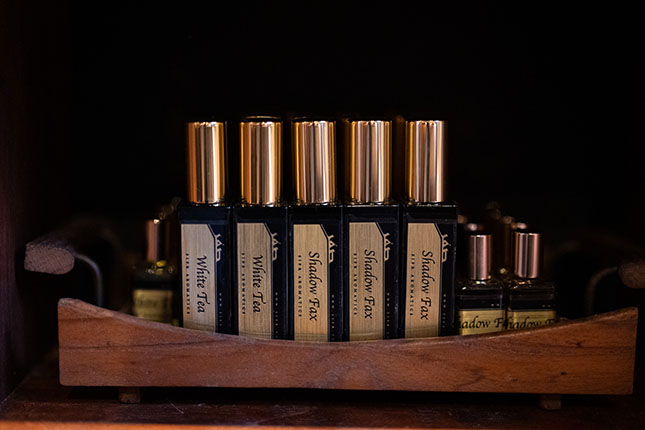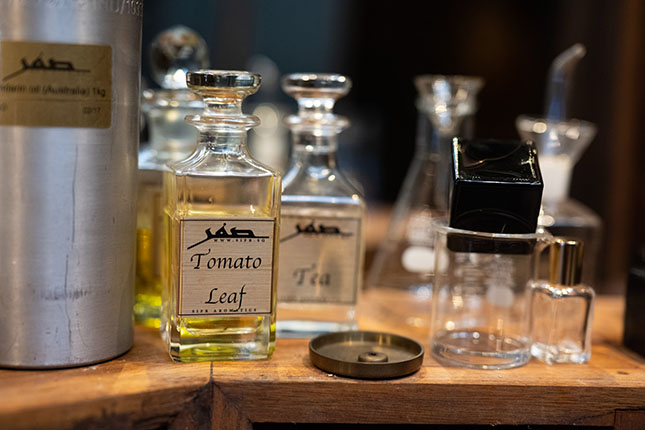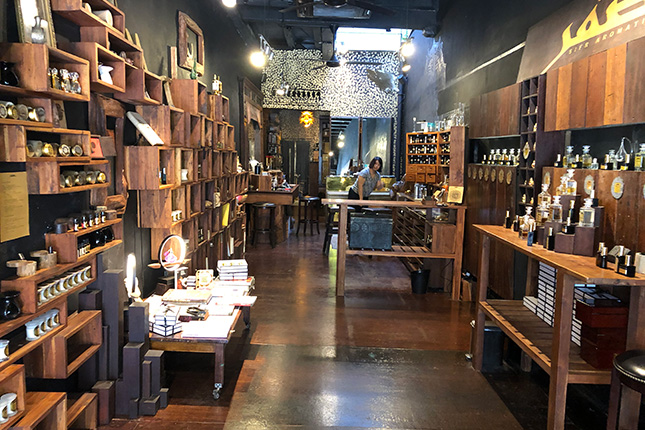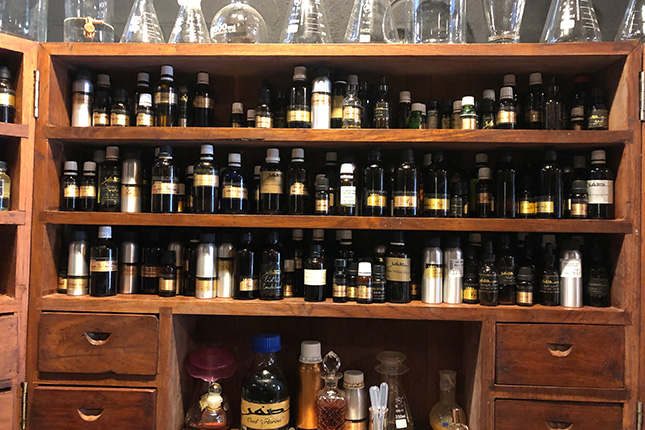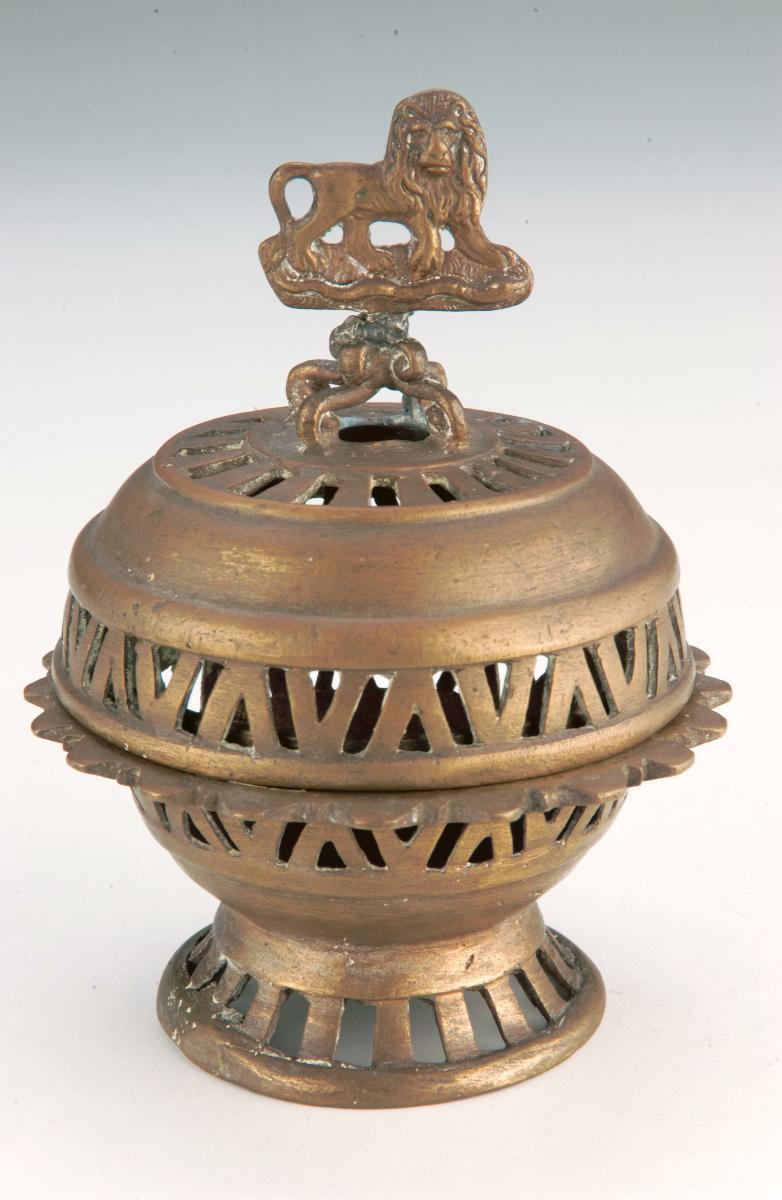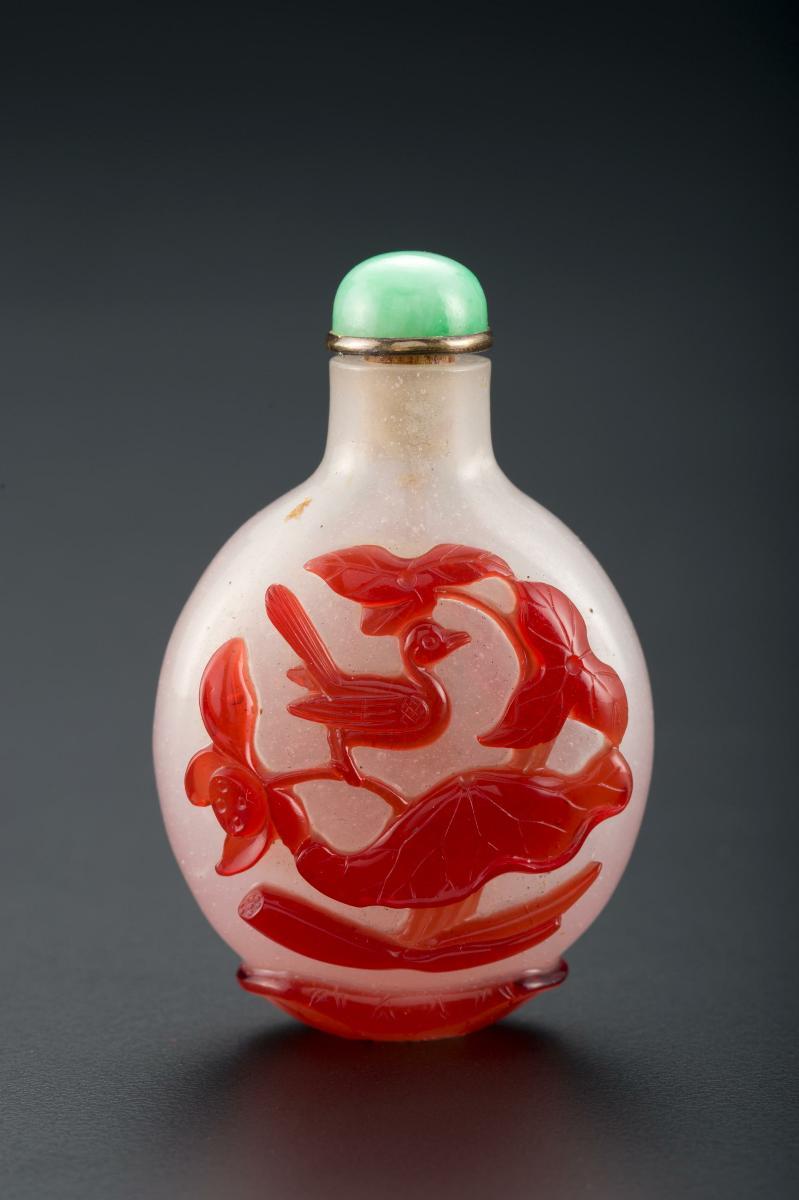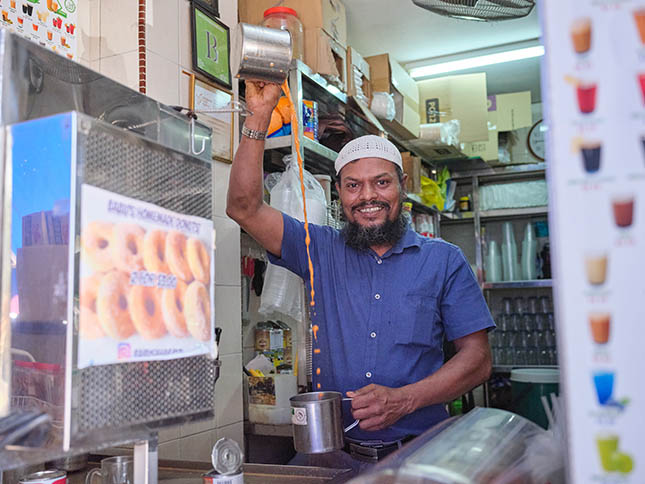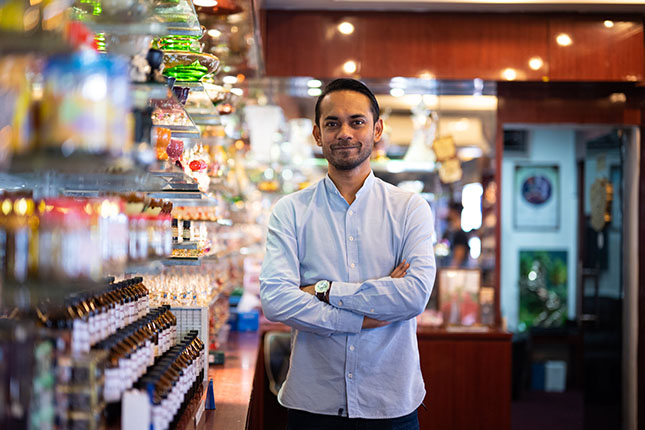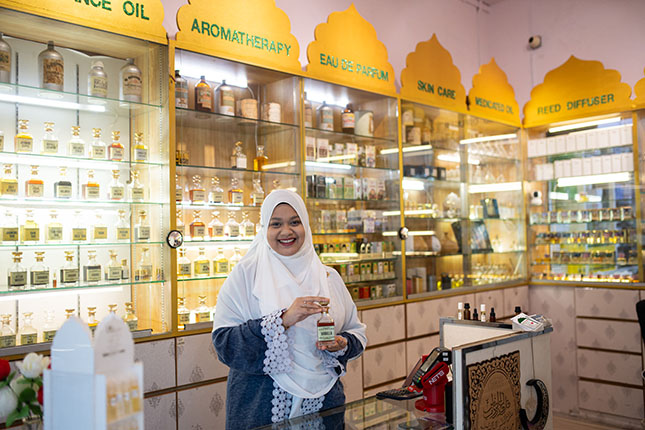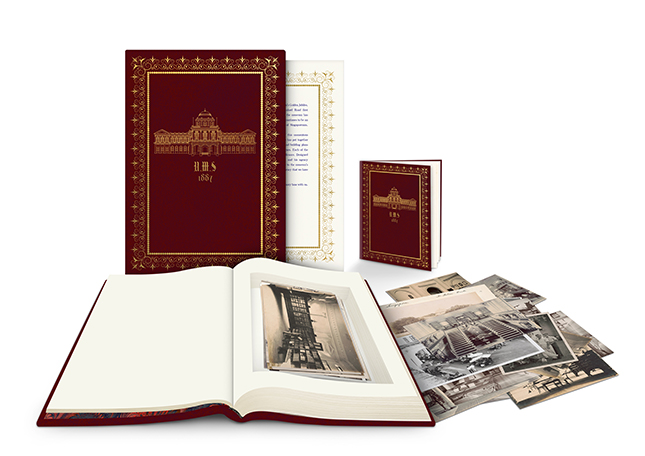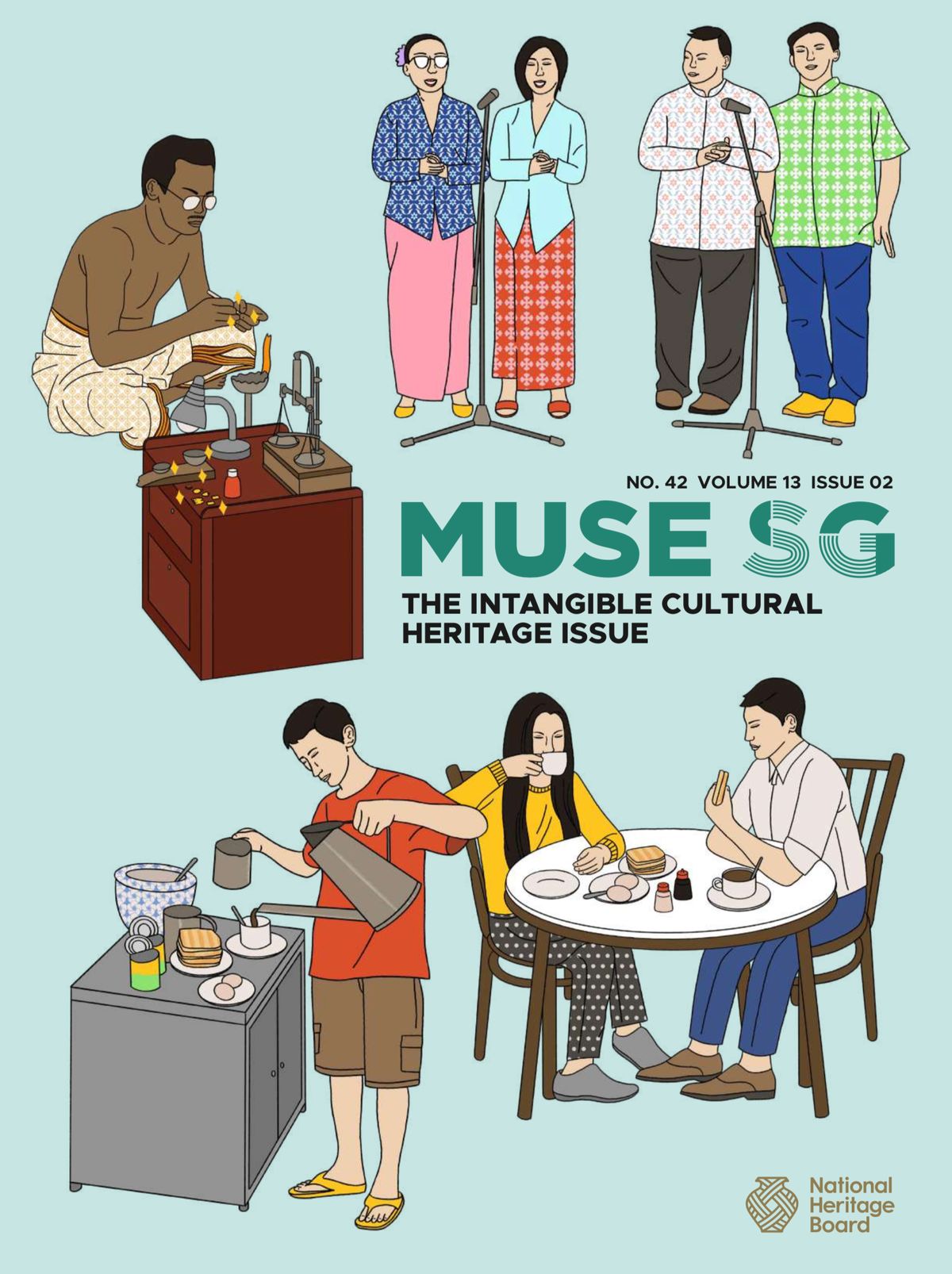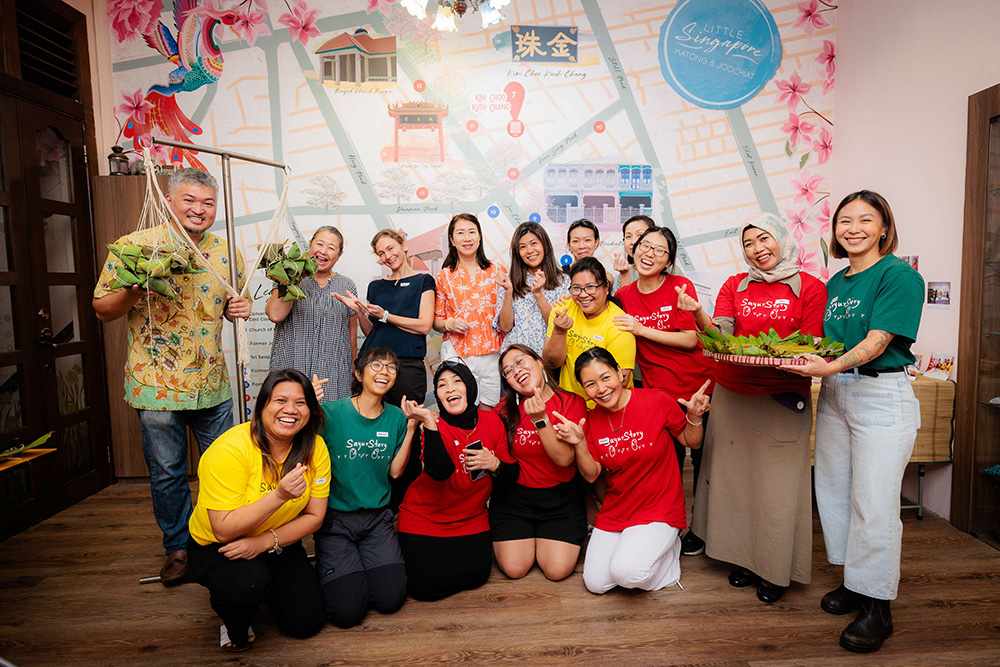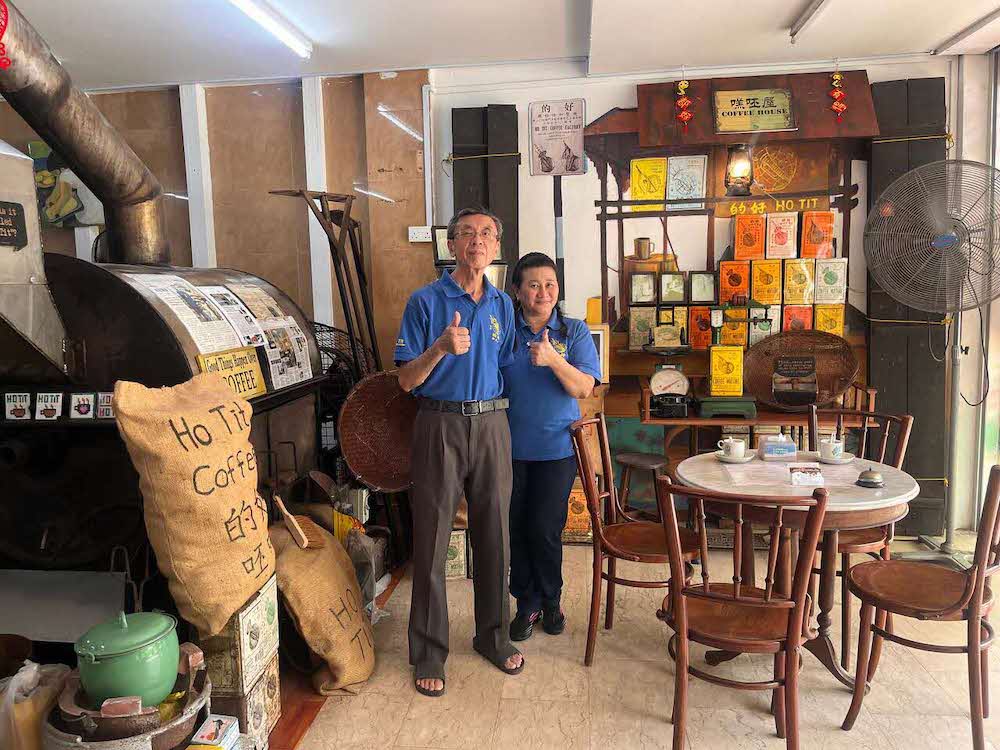Scents and Sensibility
|
Name of business: |
Sifr Aromatics |
|
Business Location: |
42 Arab Street, Singapore 199741 |
|
Business type: |
Perfumery and Aromatics |
|
Established: |
2010 |
Sifr Aromatics specialises in traditional aromatics, selling small-batch perfume oils, soy-wax candles, essential oil blends and customised fragrances. The business is run by Mr Johari Kazura, whose grandfather, Mr Hanifa Kazura, founded Kazura Company (renamed as Jamal Kazura Aromatics). Johari started his own offshoot business as a way of exploring new ingredients, techniques, and products.
Johari deals with scents. His business, Sifr Aromatics, specialises in small-batch perfume and cologne oils, soy-wax candles, essential oil blends, as well as customised fragrances. Located at 42 Arab Street, the shop may seem small when one first glances the unit from the outside. However, stepping through the doors is like entering a whole other world of its own. Wooden shelves cover the walls with scented candles and antique perfume bottles on display. A gold-coloured piano sits in the middle of the shop, inviting patrons to liven up the place with music. Built with a high ceiling, the shop never feels too cramped even with every corner furnished. What catches the attention of every visitor are the scents drifting in the air. Instead of overpowering one’s olfactory senses, the scents of woody, floral and citrus aromas are faint but distinct.
Johari comes from a family of perfumers. His grandfather, Mr Hanifa Kazura, founded Kazura Company in 1933, a general merchandise store at the time. Johari’s father, Mr Jamal Kazura took over the business in the mid-1970s. At that time, he decided to specialise in perfumery and renamed the business as Jamal Kazura Aromatics – now known as one of Singapore’s oldest operating fragrance businesses. Johari grew up experimenting with the techniques of distilling and extracting scents. He watched his father run the business and helped with the store for twenty over years. He knows the chemistry of aromatics like the back of his hand.
However, Johari’s passion lies not in perfumery, but in creating new, interesting things. His experiences in the United States and Grasse, France inspired his perspectives. “I had the good fortune of seeing the outside world,” he says. “Then coming back, I saw there were many other ways of doing this business. I wanted to see how this trade and business can continue and be more relevant.”
This was how Sifr Aromatics was born in 2010—out of a desire to explore new ingredients, techniques, and products. Johari sought to blend the traditional craft of perfumery with a more modern approach to scents. “I looked at the old businesses and looked at what’s worth saving, [be] it the old formulae, techniques, way of doing, or service, [while] trying to give it more value,” Johari says. “I include more modern ingredients, more techniques, actually all of it… The actual art of perfumery is very old because there are a lot of old ingredients, but as time goes on, as technologies improve, it gets influenced by fashion, [and] what people like now.” He uses synthetic and natural ingredients but makes sure to acquire his ingredients and packaging from sustainable, ethical sources.
Johari’s family business has deep roots in Kampong Gelam and he shared that his grandfather had set up Kazura Company in Kampong Gelam because of the Masjid Sultan (Sultan Mosque). “Islam has a strong relationship with perfumes and aromatics,” Johari says. “It actually alludes to ‘God liking good smells when making prayers.’ If you went to a mosque, there’s a good chance you’ll find either free perfumes in the mosque or perfume shops around.” Mosque-goers would frequent the family business to buy perfume oils, contributing to the popularity of the Kazura brand.
With Sifr Aromatics popping up in more blogs, travel guides and tours, it is crucial to describe the nature of the business in a way that does not categorise the business as a shop that only sells religious perfumes. Even “perfumery” can be a bit of a misnomer that fails to capture the variety of products that the business offers today. “As an intangible cultural heritage, I think the word, it has to be more expansive, like ‘traditional aromatics’,” Johari says. “Because then it opens up so many more things that were a part of our lives, like the incense, the environmental scents, what you used to wash your floors, and there were very traditional ingredients that we used to use.” Johari’s grandfather was already dabbling in aromatics in his time, making toilet cleaners, bug sprays originating from citronella and lemon grass. “Aromatics” is a much more inclusive term that reveals how scents are intertwined with one’s everyday life.
“Our trade involves one of our senses. As long as COVID doesn’t take everyone’s sense of smell away, we’ll still want to smell nice things in the future,” Johari says. He plans to keep creating new scents and is always happy to share his knowledge on aromatics to customers who appreciate the craft.
Interviewed by Felicia Mualim and Jacqueline Choo on 2 May 2022.




